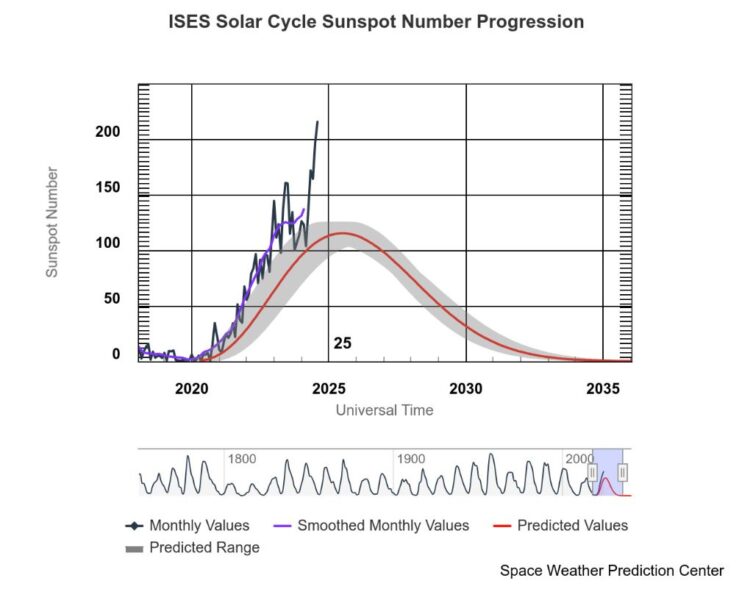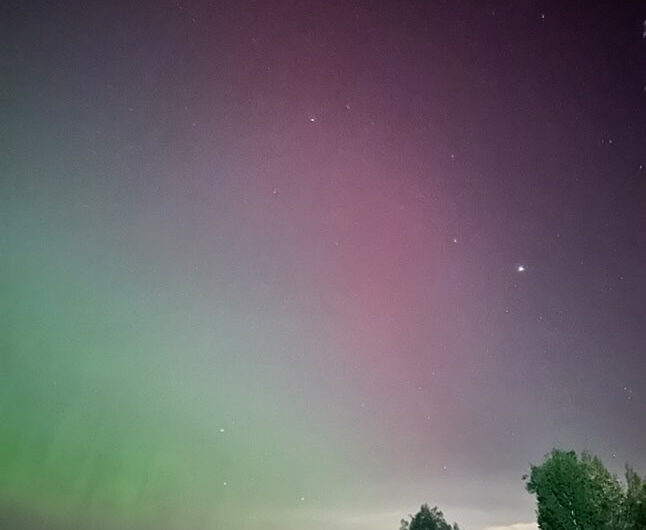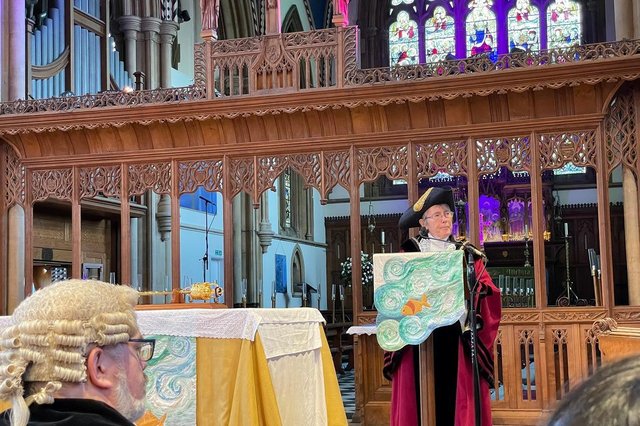With the recent sightings of the Northern lights also known as aurora borealis, the met office have now confirmed that the UK is likely to see more of this rare sight as part of a solar cycle.
The Sun follows a natural cycle, shifting between low and high magnetic activity every 11 years. At the peak of this cycle, known as the solar maximum, the Sun’s magnetic poles flip, turning it from calm to highly active.
During solar maximum, sunspot numbers spike, increasing the chances of space weather events and boosting the potential for aurora sightings here on Earth.

NASA, the National Oceanic and Atmospheric Administration (NOAA) and the International Solar Cycle Prediction Panel confirmed that the Sun has reached its solar maximum period, which could continue for the next year.
Krista Hammond, Space Weather Manager from the Met Office Space Weather Operations Centre (MOSWOC) said: “We’re now in the solar maximum phase, which means there’s more frequent sunspots and solar activity in general.
“While it’s not possible to know precisely what this means for individual Earth-directed solar events, it does mean there will likely be further chances of aurora visibility in the UK in the coming months.
“While we’re in the solar maximum phase now, which could last a year, it’s not possible to know exactly when the number of sunspots peaked until some time after it has happened.”
Following the solar maximum phase, the sun’s activity will gradually decrease as it approaches solar minimum, but Earth will still experience space weather events and occasional visible auroras.
Krista added: “While the total number of sunspots will start to reduce after solar maximum, we will continue to see space weather throughout the solar cycle, even as overall activity declines.
“Indeed, in some solar cycles, the larger events can happen as the Sun transitions back towards solar minimum.
“It’s our job in MOSWOC to forecast these events in the coming months and years to minimise any potential disruption to satellite operations or some ground-based infrastructure.”




